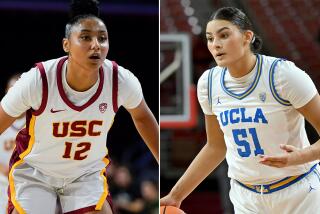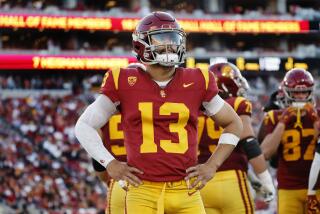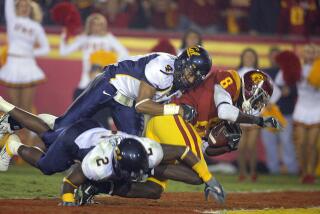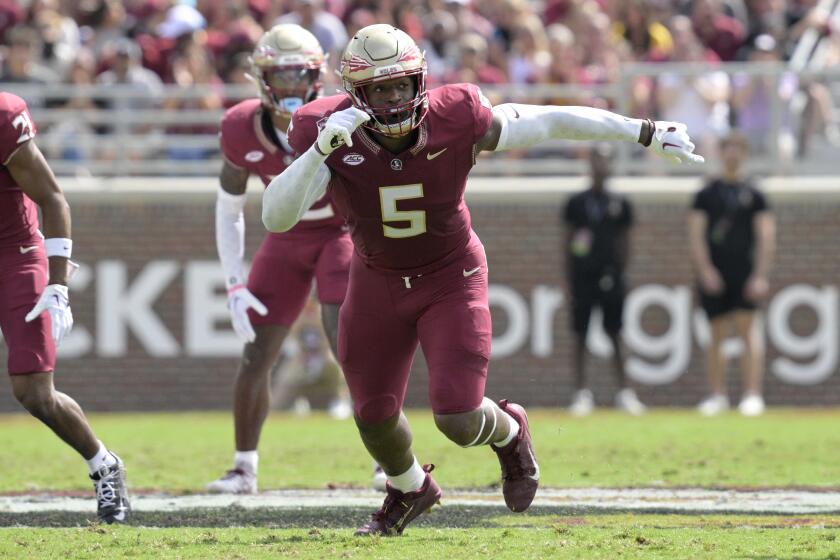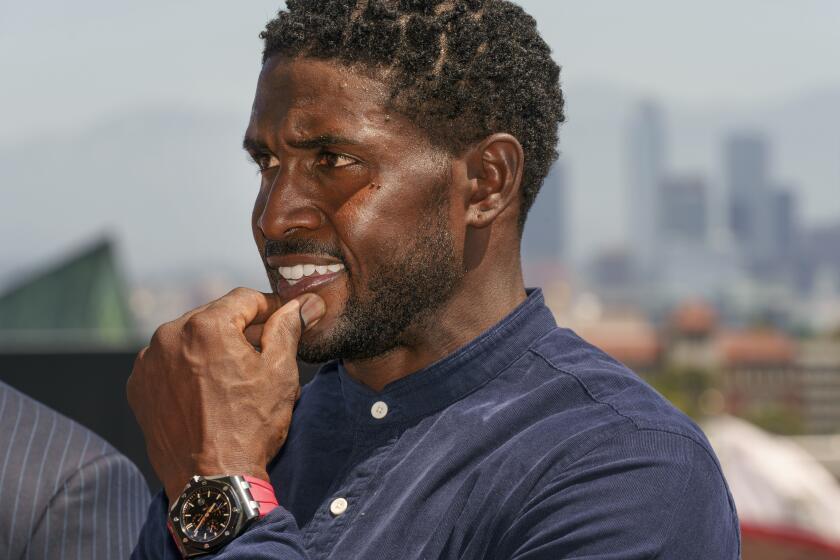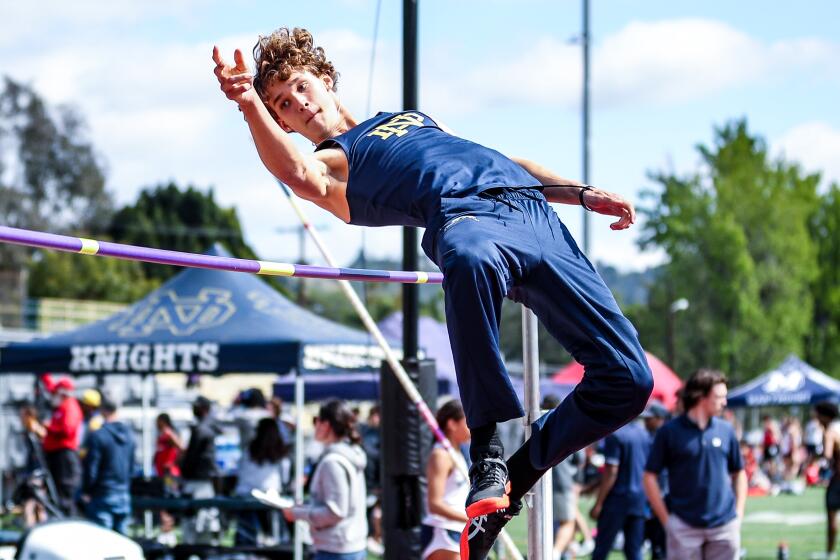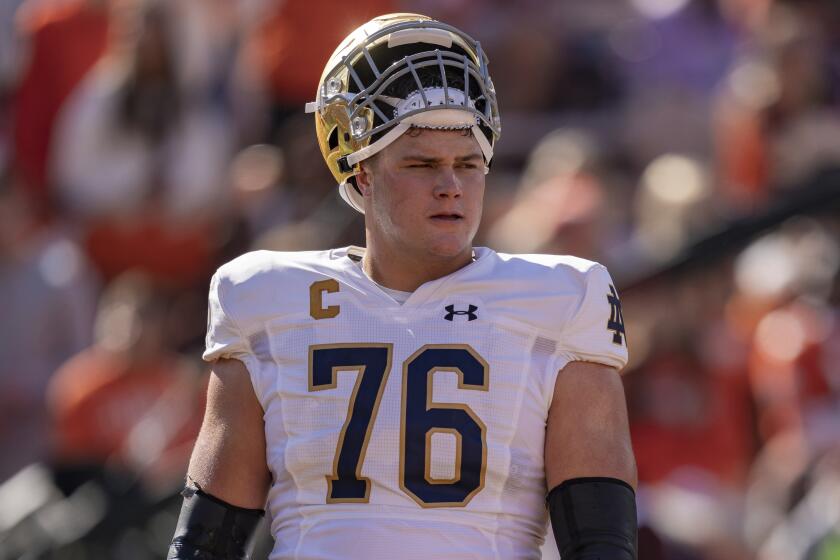Column: West Coast offenses, and defenses, in college football spotlight
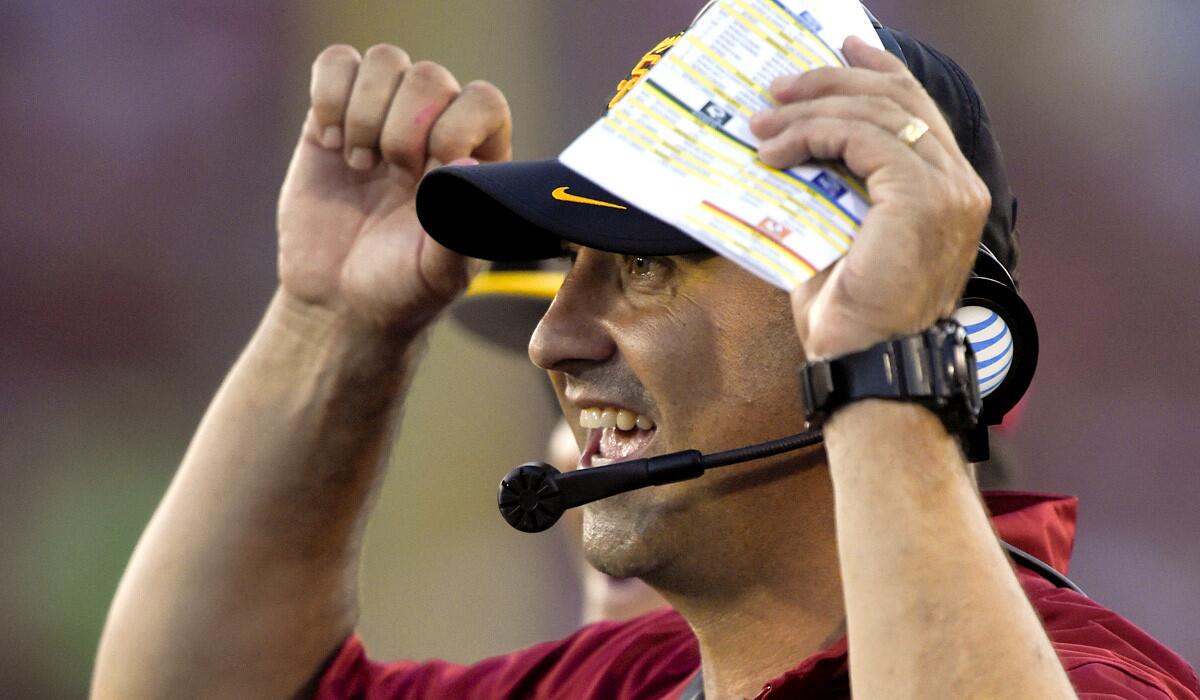
Michigan and Notre Dame won’t play again after Saturday until maybe ever, but let’s get to the important games.
Yes, it says something about a dying-ember rivalry that it could finish a distant third on a slim list of must-see marquee games.
The big-board action is in Eugene, Ore., where Michigan State takes on Oregon, and Palo Alto, where Stanford hosts USC.
These aren’t merely terrific matchups involving top-20 teams. They are epic philosophical clashes pitting new doctrines against old-school tenets.
USC at Stanford is a critical early South-North showdown in the Pac-12 Conference, a game dripping in saga and significance. This time-worn rivalry was reborn in 2007 when Stanford shocked Pete Carroll’s USC team at the Coliseum.
It was the start of the Jim Harbaugh era at Stanford and the beginning of Carroll’s sidestep to Seattle.
Between then and now, Stanford co-opted USC’s identity and became the prototypical pro-style program of the West Coast, churning out quarterbacks, tailbacks and tight ends to the NFL.
USC was slow to respond, as it was shellshocked and depleted by NCAA sanctions. The Trojans did play spoiler last year by upsetting the Cardinal at the Coliseum, a result that might have denied Stanford a berth in the Bowl Championship Series title game.
David Shaw has continued Harbaugh’s physical-wins mantra, loading up with recruits coveted by USC.
Things at USC have changed, though, under first-year Coach Steve Sarkisian. Instead of trying to win a conventional trench slog, USC has opted for up-tempo, adding a twist to a game that was always going to be enthralling.
Stanford owns the template on how to slow Oregon’s spread offense, but panicked last year when Sarkisian’s Washington team cranked up the pace in Palo Alto. Stanford narrowly escaped defeat against an inferior team and then had to explain why players were falling down without being touched.
Sarkisian accused Stanford of faking injuries, an allegation Shaw has vehemently denied.
USC has two advantages this year: Sarkisian’s new tempo wrinkle and playing the game in early September. Stanford is replacing key members from last year’s Pac-12 championship team and figures to be more vulnerable now than in November.
Michigan State at Oregon offers a similar theme as the Ducks try to make a national statement and prove they can win games against lock-down defenses.
Michigan State plays like Stanford, the team it met in a smash-mouth Rose Bowl game last year. The Spartans prevailed on a dramatic fourth-down defensive stand.
Michigan State had the nation’s No.1 defense, but, like Stanford, is missing key components. The Spartans are replacing six starters on defense, including All-American cornerback Darqueze Dennard.
Michigan State at Oregon is the first great nonconference game of the new College Football Playoff era. It comes down to the same questions we ask every year when Stanford plays Oregon: Can great defense stop great offense?
Stanford’s Shaw has his mind on USC, but he’s also curious to see how Michigan State fares against Oregon.
“The most intriguing thing to me is Michigan State’s defense,” Shaw said this week. “You’re talking about a dominant defense a year ago. They’re missing a lot of guys … but if they can play at a high level, that could be a close, tight game … the whole thing hinges on that defense.”
While Saturday’s winner in Palo Alto takes early control of the Pac-12 race, Saturday’s winner in Eugene moves front-and-center into the early four-team playoff discussion.
Finishing distant third on the weekend watch list is Michigan at Notre Dame, the final act in a long, turbulent relationship.
Michigan enters the game unranked while Notre Dame is ranked with an asterisk, with five key players still out as the school investigates possible academic improprieties.
The football series has been off-and-on since the first meeting in 1887. This is the 42nd encounter, but a lot of them have been special. The schools agreed in 2007 to extend the series until 2031, but that changed when Notre Dame agreed to play five games against Atlantic Coast Conference teams every year.
Michigan Coach Brady Hoke said Notre Dame “chickened out” of the series. Notre Dame Coach Brian Kelly said last year that Michigan wasn’t really one of the Irish’s traditional rivals. (Kelly was right, but he later recanted.)
The story took another turn Thursday when Notre Dame agreed to play Ohio State in a two-game series.
Take that, Michigan. Now let’s settle in for those big weekend games on the Pacific Coast.
More to Read
Get our high school sports newsletter
Prep Rally is devoted to the SoCal high school sports experience, bringing you scores, stories and a behind-the-scenes look at what makes prep sports so popular.
You may occasionally receive promotional content from the Los Angeles Times.
